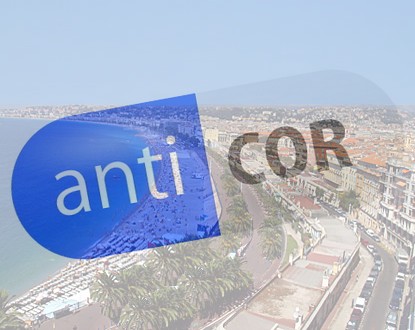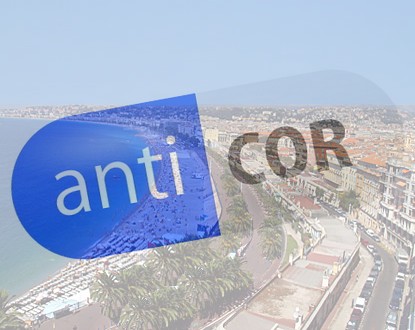The Collective for a Citizen Audit of Nice’s Debt and Anticor 06° revisited the topic of toxic loans, with the presence of Florence Laplane, Nadège Bonfils, Séverine Tessier, and Jean-Christophe Picard, who were assisted by two lawyers, Jérôme Karsenti and Patrick Rizzo. Several elected officials were present: Marc Concas (PS), Yann Librati (PS), Mari-Luz Hernandez-Nicaise (EELV), and Emmanuelle Gaziello (PCF).
As explained in the report of the investigative commission on risky financial products, published on December 6, 2011: “Various local public actors have subscribed, starting from the 1990s, to structured loans with variable rates, initially with lower repayment installments, but much riskier than traditional fixed or variable-rate loans. These loans were particularly indexed to values or ratios between indices that turned out to be very volatile, leading to an exponential increase in interest rates payable. […] Some elected officials used the expression ‘time bomb,’ as these products were presented at the time of subscription as a modern solution for active debt management, never as the speculative instruments they actually were.”
Like other localities, the city of Nice fell into the trap of structured loans. It subscribed to three toxic loans (loans numbers 430, 448, and 450) from Dexia, with a borrowed amount of 70 million euros.
Members of the Collective for a Citizen Audit of Nice and Anticor 06 explained that recourse against the banks that offered toxic loans is possible, based on their breach of the obligation to inform, advise, and warn.
 About a hundred communities have already initiated this type of litigation. And the case law seems favorable. Thus, the Nanterre Tribunal de Grande Instance replaced, on February 8, 2013, the exorbitant rates of three loan contracts with the legal interest rate (0.71%) due to a lack of information. The Paris Court of Appeal authorized, on July 4, 2012, the suspension of interest payments on toxic loans, after noting that the loans at issue violated “the prohibition for these local authorities to subscribe to speculative contracts.”
About a hundred communities have already initiated this type of litigation. And the case law seems favorable. Thus, the Nanterre Tribunal de Grande Instance replaced, on February 8, 2013, the exorbitant rates of three loan contracts with the legal interest rate (0.71%) due to a lack of information. The Paris Court of Appeal authorized, on July 4, 2012, the suspension of interest payments on toxic loans, after noting that the loans at issue violated “the prohibition for these local authorities to subscribe to speculative contracts.”
However, time is pressing: any legal action must be undertaken before June 17, 2013, for contracts signed between June 17, 2003, and June 17, 2008 [1].
In the end, those present acknowledged with satisfaction the commitment of the three municipal councilors of Nice present (Yann Librati, Marie-Luz Nicaise, and Emmanuel Gaziello) to submit a motion at the next municipal council meeting, asking the mayor to engage in this type of recourse.
A bit of history
In June 2010, the President of the Finance Committee of the City of Nice, socialist Yann Librati, raised the alarm on toxic loans for the first time.
Up until then, no elected official had addressed this issue. At the time, the municipal majority accused him of “creating buzz” and refused to listen. The subsequent events unfortunately proved him right…
Here is a concise summary of the actions and recommendations of Yann Librati regarding the toxic loans dossier:
a) Reducing risks to the finances of the City of Nice
The President of the Finance Committee requested a forecast table for reducing the proportion of structured loans in the debt outstanding.
In 2009, the City of Nice recommended resorting to revolving loans to secure the debt outstanding.
The President of the Finance Committee requested more prudent management of the City of Nice’s debt: replacing structured loans with revolving loans!
b) Zero tolerance on toxic loans
Subscribing to new structured loans, despite repeated warnings from the Court of Auditors, would constitute a serious breach of the principle of prudence that guides the financial management of local authorities.
The city must not simply reduce the share of structured loans in the overall debt; it must no longer contract any new structured loan!
The President of the Finance Committee requested, in the form of a motion to the municipal council, an official commitment from the City of Nice to no longer subscribe to any structured loans.
The President of the Finance Committee requested complete transparency regarding any new loans contracted by the City of Nice: what are the risks associated with these new loans?
c) The City of Nice must apply the “code of good conduct”
A code of good conduct between banking institutions and local authorities was signed on December 7, 2009, under the aegis of the Secretary of State for Local Authorities, Alain Marleix. This code took effect starting January 1, 2010. It contains six commitments, four of which are the responsibility of banking institutions, and two of local authorities.
The President of the Finance Committee requested the application by the City of Nice of the “code of good conduct” between banking institutions and local authorities.
o Respecting the 5th commitment of the Charter:
The City of Nice must develop the “transparency” of decisions concerning its borrowing and debt management policy.
This implies a presentation to the Municipal Council and the Finance Committee of risky loans using the classification contained in the risk table presented by the Charter.
“Deliberative assemblies will thus be able to specify the classes of underlying indices and structures they authorize their executives to use.”
As a result, the City of Nice should submit to the Municipal Council vote, for authorization, the different classes of indices and loan structures.
o Respecting the 6th commitment of the Charter:
This involves presenting to the Municipal Council and the Finance Committee the risky loans that “recall the outstanding of structured products, the nature of underlying indices, the structure of products, and an analysis of the risks associated with these products.”
As a result, the City of Nice should present to the Municipal Council and the Finance Committee, for each of the structured loans contracted:
The nature and rate of underlying indices.
An amortization schedule based on the original index.
An amortization schedule based on the underlying index.
The amount of “future value” or “net asset value.”
An analysis of the risks associated with the product.
The “code of good conduct” between banking institutions and local authorities, following the recommendations of the Court of Auditors, ultimately encourages returning a key role to the deliberative assemblies, and, in this case, the municipal council: it is the elected officials, not the technical departments of the city, who must decide, in the final analysis, the type of loans the municipality can subscribe to.
Similarly, the decision to prioritize settling existing structured loans rather than incurring other expenses must be up to them.
And, to do so, they must have all the necessary information for their decision-making.


